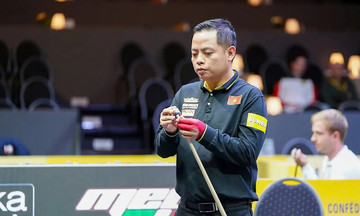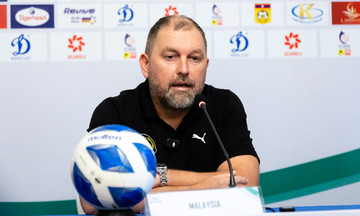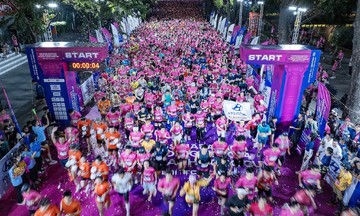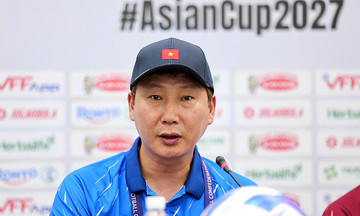At the U21 World Championship in Indonesia on 12/8, Vietnam's representative was handed four 0-3 losses by the International Volleyball Federation (FIVB) due to an ineligible player. The disciplinary decision didn't specify the reason or the player's identity. This player was later identified as Dang Thi Hong, and the violation was related to gender.
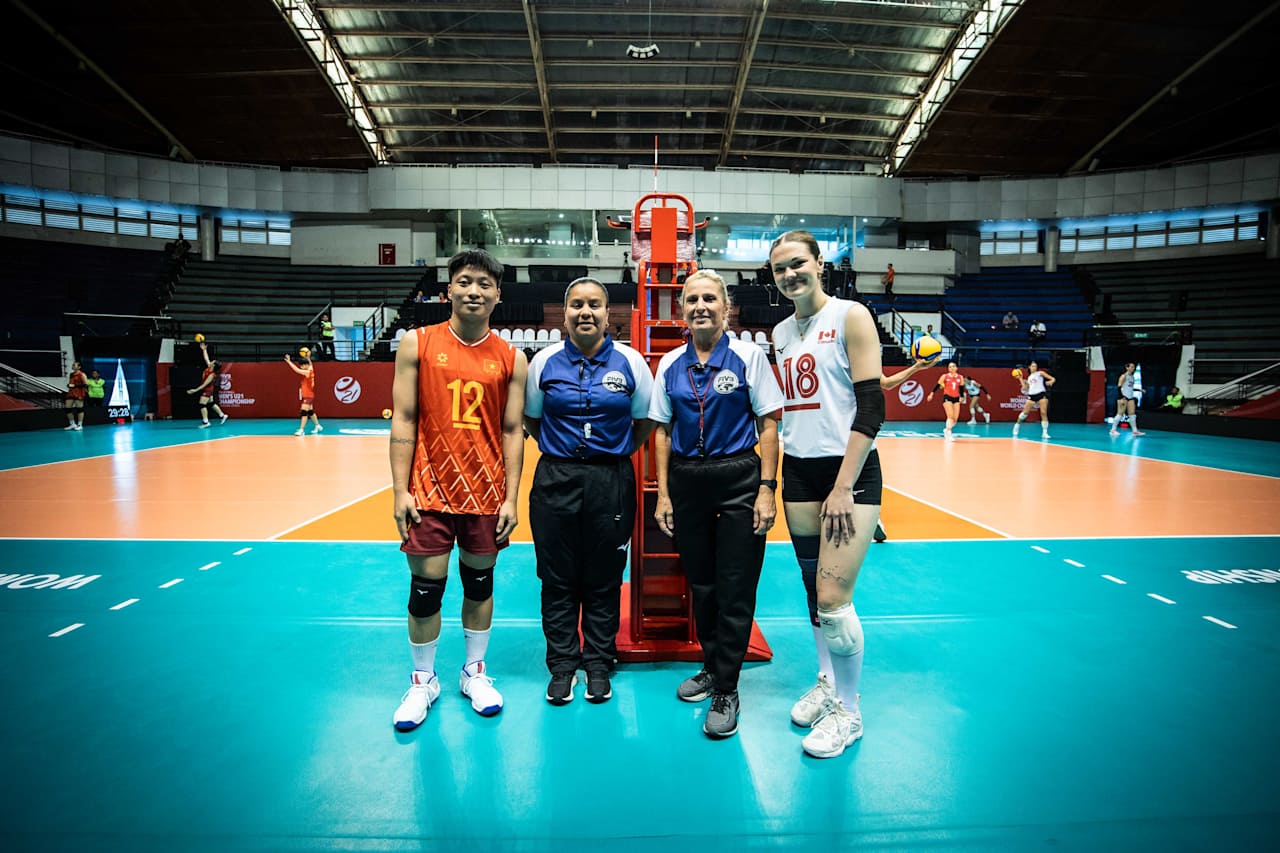 |
Dang Thi Hong (left) competing at the 2025 FIVB Volleyball Women's U21 World Championship in Indonesia in August. Photo: FIVB |
Dang Thi Hong (left) competing at the 2025 FIVB Volleyball Women's U21 World Championship in Indonesia in August. Photo: FIVB
Speaking with VnExpress on 16/9, Mr. Truong clarified the FIVB's process. Following a complaint from another team, the organizing committee requested Vietnam submit original documents for three players, including birth certificates. All information matched the registration, except one player's birth certificate was issued one year after their birth, and another's two years after. The VFV explained that these players were from rural areas with limited access, leading to delayed birth certificate issuance, a common occurrence in Vietnam.
Subsequently, the organizing committee proposed an SRY gene test to detect the Y chromosome and determine the players' biological sex.
To protect individual rights, the FIVB didn't share the test results with the VFV but informed the player directly in Indonesia, along with a team doctor due to medical implications. "In the notification sent to Vietnam, the FIVB didn't state that Dang Thi Hong is male, but only concluded that the player was ineligible and didn't match the birth certificate," Mr. Truong added.
According to Mr. Truong, the FIVB was careful with its wording, recognizing gender as a sensitive issue in sports. "They can't definitively confirm in Dang Thi Hong's case, as well as many similar cases globally, because current science can't 100% prove an athlete is male through any method, such as chromosome or testosterone testing," he emphasized.
In global medicine, the term "intersex" describes individuals with intersex traits. They may have chromosomes, external genitalia, internal reproductive organs, or hormone levels that differ from traditional definitions of male and female. Medical experts also point to several syndromes, such as Congenital Adrenal Hyperplasia (CAH) and Swyer syndrome, which cause women to have biological male characteristics. These characteristics can make them appear increasingly male over time.
Therefore, the VFV general secretary hopes fans will empathize with Dang Thi Hong, who has an undesired syndrome. He also reiterated that neither the player nor the Federation committed fraud or concealed anything. "Gender testing requires individual consent. If players refuse, they won't be allowed to compete, but their gender information will be protected," Mr. Truong stated. "However, when requested, the three Vietnamese players were cooperative, didn't avoid the tests, and thought everything was normal."
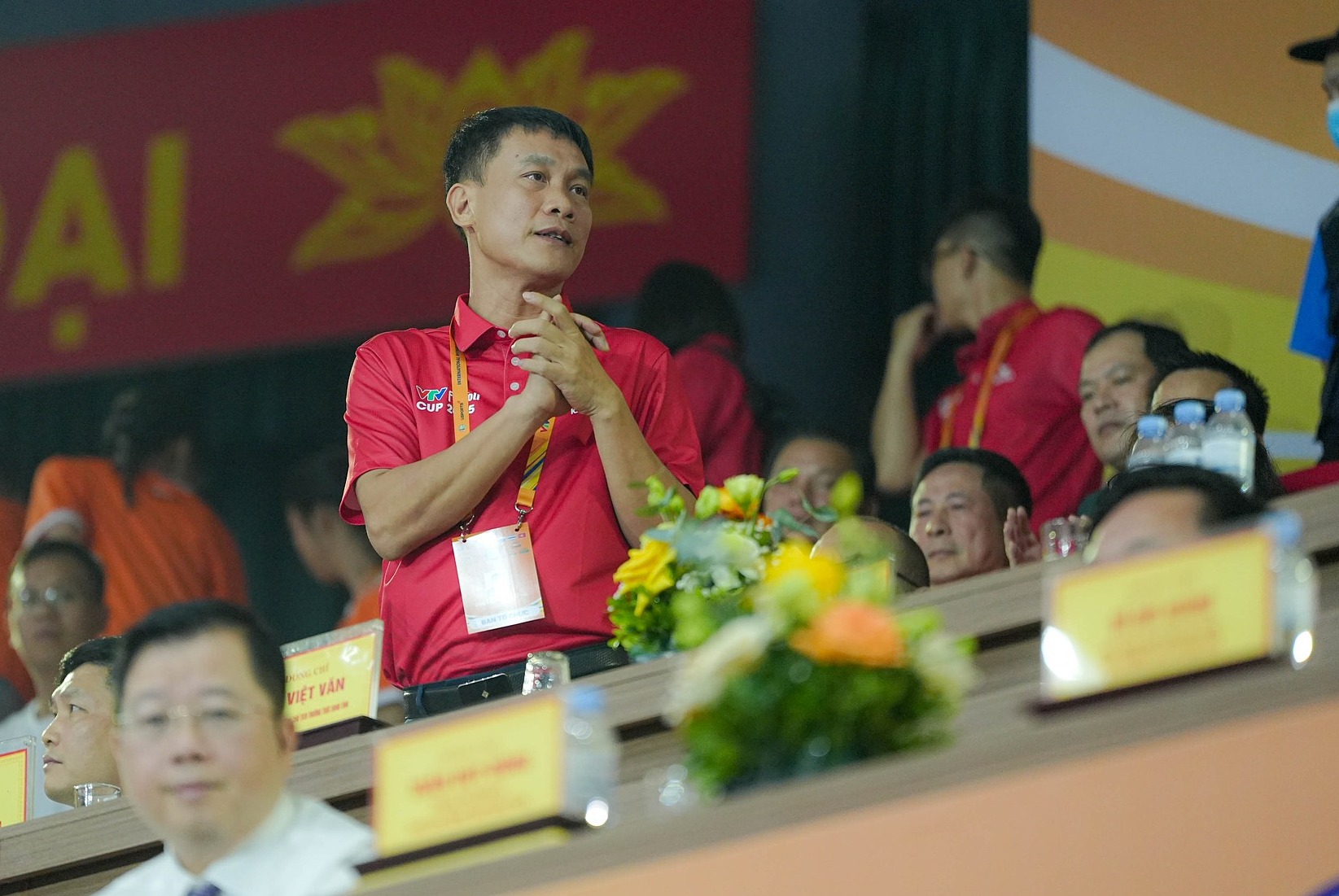 |
Vietnam Volleyball Federation General Secretary Le Tri Truong. Photo: VFV |
Vietnam Volleyball Federation General Secretary Le Tri Truong. Photo: VFV
The VFV disagrees with the world federation's testing method and gender criteria.
The U21 World Championship regulations stipulate player eligibility based on birth certificates. The FIVB has the right to test players following complaints from other teams to seek medical evidence, but it doesn't specify the testing methods or result criteria.
Mr. Truong said the VFV sent three complaint letters but hasn't received a response from the FIVB. Instead, the world federation assigned a legal member to communicate via email. When Vietnam requested written guidelines and testing regulations, the FIVB said it had just begun research.
Mr. Truong said: "During the tests, the organizing committee announced the use of advanced SRY genetic testing as the most accurate method. We further inquired if other tournaments used the same method, and they said yes, when necessary. But when we asked about the legal basis, they couldn't provide specific regulations or documents."
The VFV general secretary cited the SEA Games 33 guidelines in Thailand, which include regulations for gender disorder testing in women's sports. Additionally, World Athletics mandates SRY testing for athletes from 1/9/2025. This involves collecting buccal swabs or dried blood spot samples for analysis. If an athlete has a Y chromosome, they are not allowed to compete in the women's category or in ranked competitions. In cases of Differences of Sex Development (DSD) with high testosterone production, athletes must lower their hormone levels below the permissible threshold.
"These standards are agreed upon before the tournament, despite scientific debates about their accuracy. But if an athlete doesn't meet them, they can't compete," Mr. Truong explained. "We are debating this issue. The FIVB must finalize the testing method, testing location standards, and the passing threshold. They can't just test for SRY this year and something else next year."
The FIVB has changed player eligibility criteria multiple times. Before 2000, genetic testing was mandatory for female players before each tournament. But when science proved this method wasn't completely accurate, they abandoned it in 2007 and relied solely on birth certificates.
Later, the volleyball world debated the case of Aprilia Santini Manganang. The Indonesian player faced numerous complaints but was protected by the FIVB due to valid documents. Only after retiring in 2020 was Manganang identified as biologically male, after being diagnosed with hypospadias at birth. Boys with this condition can be mistaken for girls. In 2022, the FIVB amended its regulations, allowing gender verification if there are complaints with medical evidence, which applied to the three Vietnamese players at the recent U21 tournament.
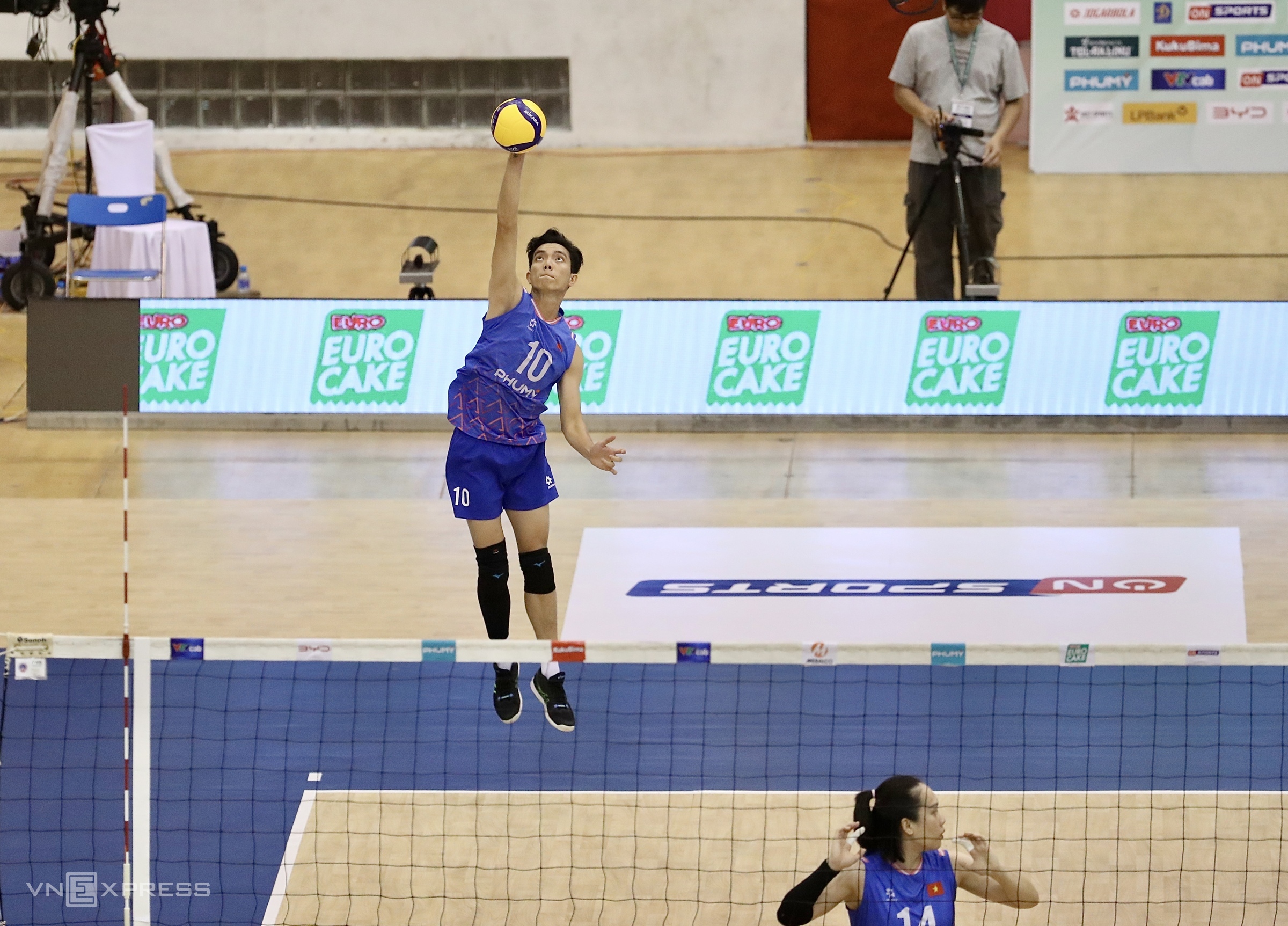 |
Nguyen Thi Bich Tuyen competing in the match where Vietnam defeated Thailand 3-2 to win the second leg of the 2025 SEA V-League Women's Volleyball Tournament at Ninh Binh Province Gymnasium on 10/8/2025. Photo: Hieu Luong |
Nguyen Thi Bich Tuyen competing in the match where Vietnam defeated Thailand 3-2 to win the second leg of the 2025 SEA V-League Women's Volleyball Tournament at Ninh Binh Province Gymnasium on 10/8/2025. Photo: Hieu Luong
Past events have forced Vietnamese volleyball to adapt to prevent similar incidents at the U21 World Championship. On 11/9, the VFV executive board met and agreed to include gender testing in the 2026 national tournament regulations.
The VFV isn't implementing this immediately in the second phase of the 2025 season because there are only three months left in the year, and they want to give clubs time to prepare. Additionally, the federation is awaiting specific guidance from the FIVB. "With guidance from the FIVB, this process will be more rigorous. If it's not available immediately, we will still proceed based on current practices and inform the clubs," Mr. Truong said. "Players and clubs can proactively conduct tests beforehand. The federation won't mandate testing for everyone, but random checks or tests based on complaints are possible during tournaments."
According to Mr. Truong, gender testing might occur earlier for the Vietnamese women's volleyball team due to existing regulations for the SEA Games 33 in December. Opposite hitter Nguyen Thi Bich Tuyen, for example, must also complete the procedures to participate in tournaments.
Dang Thi Hong receives job support The FIVB's ban on Dang Thi Hong is considered indefinite, pending further notice. VFV general secretary Le Tri Truong affirmed that the athlete is the most disadvantaged in this situation, but the federation and other organizations are ready to provide support. He said: "Fortunately, the club is also standing by the player. If they can't compete, they can still work in coaching. The federation is also ready to help Hong train as a referee or statistician if she is still passionate about the sport. Additionally, some organizations have expressed interest in providing financial assistance for Hong to pursue other fields of study." Dang Hong, born in 2006, is of Dao ethnicity and hails from the remote mountainous village of SLam Ve, Nhan Mon commune, Pac Nam district, Bac Kan province. Her family has no sporting background, but she showed early talent in volleyball. After completing 9th grade, Hong was admitted to the Thai Nguyen Provincial Sports Training and Competition Center. Currently, she is on loan to the Bank for Investment and Development of Vietnam (BIDV) volleyball club. |
Hieu Luong





